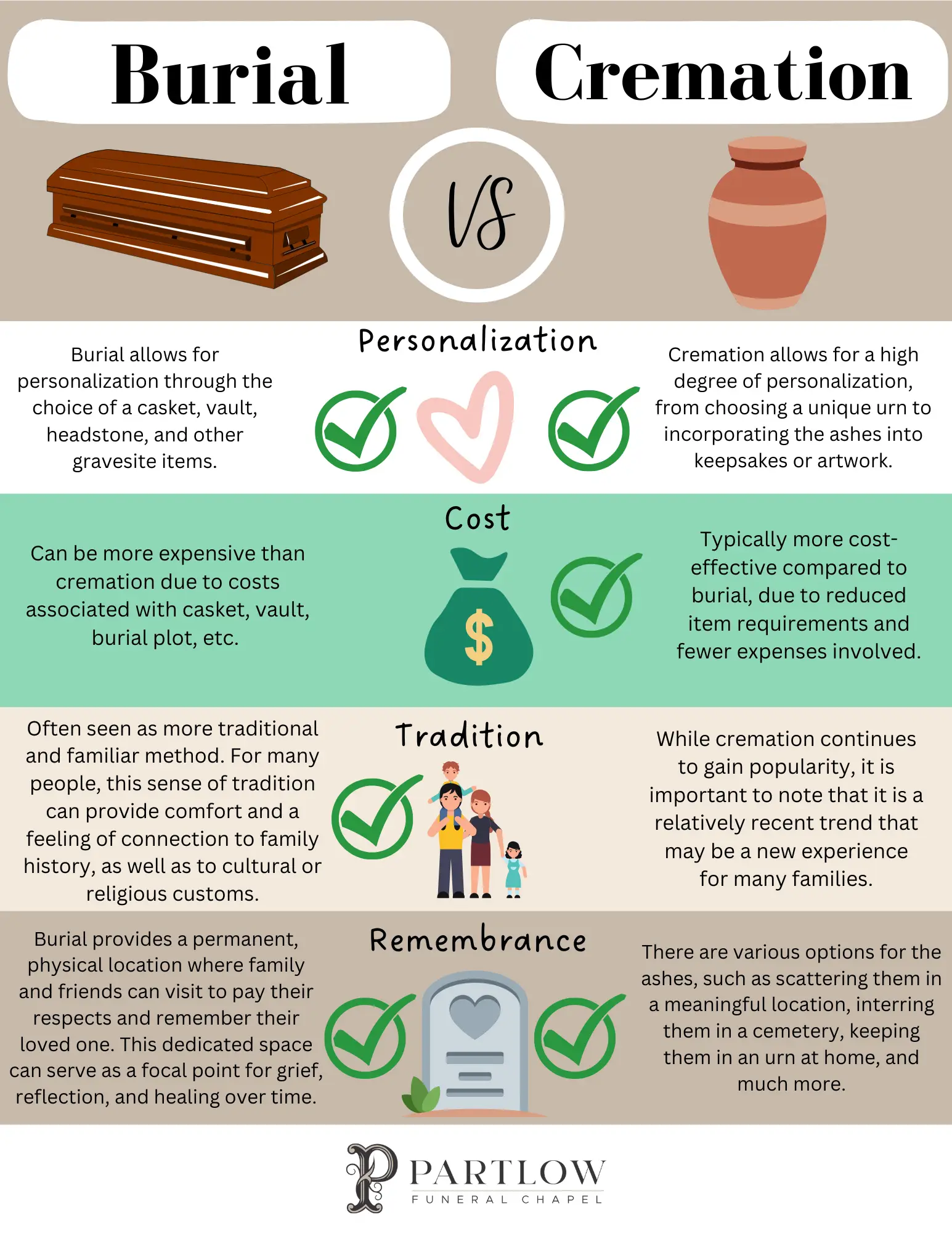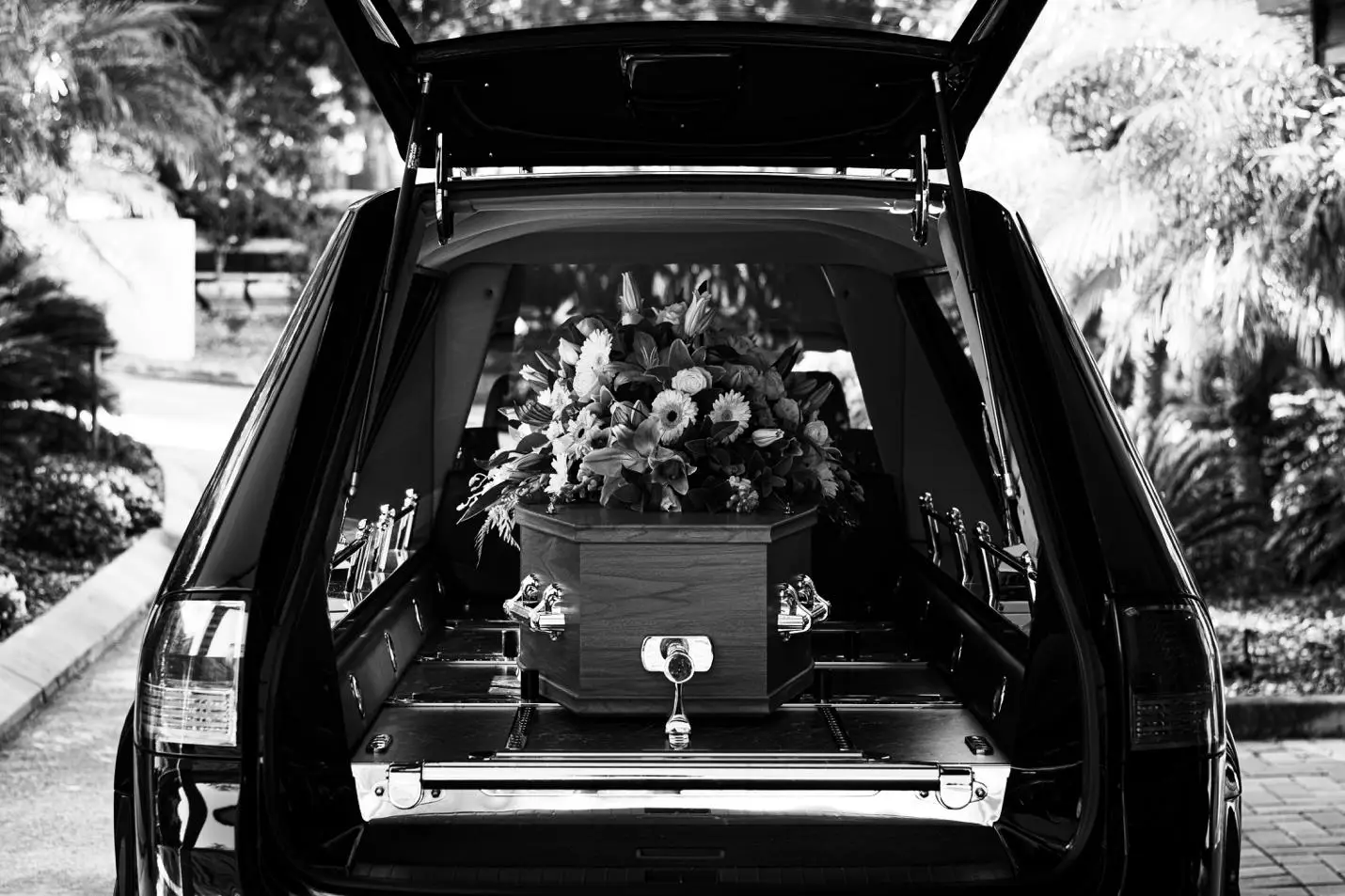Long-Distance Loss
Managing Grief and Funeral Arrangements from Afar
Losing a loved one is a universally difficult experience, but when that person passes in a different area or state, the emotional and logistical challenges can be even more overwhelming. Knowing how best to handle the situation, or even what your options are, can leave you feeling lost and confused.

Losing a loved one is a universally difficult experience, but when that person passes in a different area or state, the emotional and logistical challenges can be even more overwhelming. Knowing how best to handle the situation, or even what your options are, can leave you feeling lost and confused. In this article, we will address some of the common questions and concerns families face in these circumstances and offer some guidance to help you better navigate the process.
Initial Impact of Grief
Challenges Specific to Losses from a Distance
When grieving from a distance, feelings of disconnection, limited support, and guilt or regret can be heightened. These unique challenges can make the grieving process more complex and require different coping strategies than grieving a loss that occurs nearby.
Helpful Advice to Aid in These Initial Feelings
Staying connected with friends and family is essential to manage these initial emotions. Reach out via phone calls, video chats, or text messages to share your feelings and offer support to one another. Using technology to bridge the distance, such as creating an online memorial, participating in virtual grief counseling, or joining support groups with others experiencing similar challenges can be very helpful.
Additionally, try practicing self-care by engaging in activities that bring comfort, such as journaling, meditation, or exercise. If the grief becomes too overwhelming, don't hesitate to seek professional help from a therapist or counselor who can provide personalized guidance to help you cope with the unique challenges of grieving from a distance.
Later in the article, we’ll discuss more ways to help cope with this type of loss in the days and months after.
Determining Funeral Arrangements

Coordinating with Loved Ones and Deciding on Arrangements
Open communication with family and friends is essential when determining funeral arrangements. Discuss your loved one’s wishes, any pre-planned arrangements, and the preferences of your family. Working together, families can make decisions that respect the deceased's wishes and accommodate the needs of those mourning.
Deciding Service Details and Knowing Options
There are several factors to consider when planning a service, such as the location, type of service, and method of disposition. Each family's situation is different and may require a unique combination of these elements. Below are a few examples of how different circumstances might influence these decisions:
Location:
- If the deceased lived in a different area from their family but had a strong connection to their hometown, it might be appropriate to hold the service there to honor their roots and allow friends and family in that area to attend.
- If the deceased lived in another town for an extended period of their life, you may consider holding the main service, or a secondary memorial service at a later date, at this location.
- In cases where the deceased has a large extended family scattered across various locations, holding a memorial service at a later date, in a mutual location, could allow more loved ones to pay their respects.
- If the deceased had a favorite vacation spot or a place of personal significance, holding the service there may provide a unique way to celebrate their life and passions. For example, if your loved one was cremated, this could include a scattering service at that location.
Type of Service:
- In cases where the deceased was deeply ingrained in the community they lived, a public service or celebration of life event could be an ideal way to bring together everyone touched by their life.
- In some cases, the family may prefer a more intimate gathering to celebrate and grieve their loved one. A private, family-only service or a graveside ceremony can provide a smaller, more personal setting for close friends & family members to come together and remember their loved one. This option may be perfect for those who desire a quiet, reflective atmosphere or for families looking to minimize the stress and logistical complexities of planning a larger event.
Method of Disposition:
When choosing between burial and cremation, several factors may influence the decision. The wishes of the deceased should be the primary consideration, but it is also essential to consider the unique circumstances of each situation. Here are some specific examples of when you might consider choosing burial or cremation:
Burial:
- Tradition and Culture: The deceased's cultural or religious background may dictate a preference for burial. In some cultures or faiths, traditional burial practices are an essential part of honoring the deceased and adhering to long-held customs.
- Family Burial Plot: If the family has a burial plot in the area, they may prefer to be buried alongside other loved ones. This option allows for a physical location for future generations to visit and pay their respects. It is important to note that even if cremation is chosen, the ashes can still be buried in a family plot.
Cremation:
- Flexibility in Service Timing: Choosing cremation provides families with the freedom to schedule the service at any time or date that best accommodates their needs. This can be particularly beneficial for families spread out across different locations who may need additional time to make travel arrangements.
- Reduced Logistical Challenges: If the family opts for a service without a viewing, cremation can simplify the logistical challenges associated with transporting the deceased's body, especially if the service takes place in a different location from where the individual passed away. With cremated remains, families have more flexibility in transportation and fewer restrictions.
- Scattered Family Members: Cremation allows for the division of ashes among family members living in different areas. This option enables each family member to keep a part of their loved one nearby, providing ongoing comfort and connection.
Regarding the viewing of the deceased, families must consider whether they prefer a private or public viewing and the location of the service. If the viewing is brief, with only family present, and will occur where the deceased passed, embalming may not be necessary. However, if the service takes place in a different location or involves a public viewing, the body will likely need to be embalmed.

Each family's unique circumstances and the deceased's wishes will ultimately determine the best combination of location, type of service, and method of disposition. Open communication and collaboration among family members can help ensure that the chosen arrangements honor the deceased while also providing comfort and solace for those left behind.
Choosing a Funeral Home

When selecting a funeral home to handle a long-distance loss, it's essential to consider several factors to ensure they can meet your unique needs. Here are some key aspects to look for:
- Reputation and reviews from previous clients
- Services offered that align with your requirements
- Technological competence for handling tasks such as electronic document signing, virtual consultations, online memorials, and live streaming of services
- Experience in coordinating long-distance arrangements and providing guidance on the best options for your situation
These are just a few of the qualities to consider when deciding on a funeral provider. We also encourage you to reach out to the funeral home, discuss your needs and ideas for services with them, and ensure they’re a correct fit for you and your family.
Overcoming Logistical Challenges
Transporting Your Loved One’s Body
When planning a funeral taking place in a location other than where the deceased passed, it's important to consider the logistics involved in transporting. The transportation process can vary depending on whether the body is embalmed and whether it will be viewed, as well as the method of disposition chosen. Here are some aspects to consider:
Embalmed and Viewed
If the deceased will be embalmed and their body will be viewed, special care must be taken during transportation. In most cases, the body will need to be flown or driven to the destination, depending on the distance and time constraints. The funeral home who will handle services can help coordinate this process and ensure the body is transported safely and securely.
Cremated Remains
If the deceased has been cremated before being transported, the process becomes more straightforward. Cremated remains can be shipped through USPS or picked up by family members in person. Shipping cremated remains usually require a specific type of container and adherence to USPS guidelines, while in-person pickup allows for more flexibility in how the remains are transported.
Traveling and Accommodations
Organizing travel and accommodations for a funeral taking place in a different location adds another layer of complexity to the planning process. Here are some key factors to consider when arranging travel and accommodations for yourself and other loved ones:
Booking Travel
Compare different modes of transportation, such as flights or driving, based on factors like cost, time, and convenience. If several family members are traveling together, consider coordinating your plans to minimize stress and confusion.
Accommodations
Look for lodging options near the funeral service location to minimize travel time and simplify logistics. Research hotels, motels, or home-sharing platforms (Airbnb or VRBO) to find accommodations that suit your budget and needs.
If several family members or friends require lodging, consider booking a block of rooms at a discounted rate, or explore the option of renting a house for a more private and comfortable stay.
Coordinating with Family and Friends
Keep everyone in the loop about travel and accommodation plans by creating a group text or other communication platform. This will allow for easy updates and ensure everyone is on the same page. Sharing travel itineraries and lodging information will also help to provide a sense of unity and support during this challenging time.
Local Transportation
Plan for local transportation to and from the funeral service, burial, or other related events. Investigate options such as rental cars, ride-sharing services, or public transportation.
Honoring Your Loved One

Creating a Meaningful Memorial
Designing a personalized memorial, planning a local memorial event, or establishing an online tribute can be powerful ways to honor your loved one's memory and create a lasting legacy. Consider incorporating elements that reflect the deceased's personality, interests, and values, and use technology to bring people together despite the distance.
Remote Participation in the Funeral
In some cases, attending the funeral in person may not be possible for all family members and friends. Remote participation through live streaming or recorded video can help bridge the distance and allow everyone to pay their respects. Offering remote access to the service can provide comfort and support to those who cannot attend while fostering a sense of unity among those mourning.
Navigating the Legal and Financial Aspects
Dealing with legal and financial matters after losing a loved one can be challenging, especially when the loss occurs at a distance. Here are some specific advice and strategies to help you navigate these aspects:
Obtain Essential Documents
When a loved one passes away in a different location, obtaining essential documents like the death certificate may take additional time and coordination. Usually the funeral home will take the necessary steps to help ensure the timely acquisition of these crucial documents.
Handling the Estate
Managing the deceased's estate may require coordinating with attorneys, accountants, and other professionals remotely. Consider using video conferencing or phone calls to stay connected and ensure all necessary legal and financial matters are addressed.
Transportation of Personal Belongings
If the deceased lived far away, arranging the transportation of their personal belongings might require extra planning. Consider using a professional moving company or shipping service to handle the logistics of transporting items.
Continuing to Cope with Grief from Afar

In the days and months after the initial impact of grief, it's crucial to continue nurturing your emotional well-being. Here are some strategies to help you cope with the unique challenges of grieving from a distance:
- Establish Rituals: Create personal rituals to honor the memory of your loved one. Light a candle, play their favorite songs, or cook their favorite meals on special occasions. These small acts can help you feel connected even from afar.
- Plan a Future Gathering: Organize a get-together for friends and family in the future. This can provide a sense of purpose and comfort, knowing that you'll have the opportunity to honor your loved one with others in the future.
- Share Stories and Memories: Collect and share stories, pictures, or videos of your loved one with friends and family. This can be done through a shared online album or a dedicated memorial page, which can help you stay connected and remember the good times.
- Acknowledge Milestones: Recognize important dates, such as birthdays or anniversaries, and find ways to honor your loved one on these special days. Reach out to others who knew them to share memories and support one another.
- Connect with a Community: Join online forums, support groups, or social media groups where people share their experiences of grieving from a distance. This can provide a valuable network of understanding and support.
- Grieve at Your Own Pace: Remember that everyone grieves differently, and it's okay to experience a range of emotions as you process your loss. Be patient with yourself and give yourself the time and space you need to heal.
By implementing these strategies, you can continue to cope with grief from a distance and find ways to maintain a connection with your loved one.
For more resources and guidance on coping with grief, please visit our Grief Support page. Here, you'll find a wealth of information to help you navigate your grief journey and find the support you need.
Conclusion
Coping with the loss of a loved one from a distance presents unique emotional and logistical challenges. By staying connected, collaborating on funeral arrangements, and leaning on available resources, navigating this difficult time can be made a little easier. Remember to prioritize self-care and reach out for help when needed, as healing from grief is a journey that requires patience and understanding.
If you have additional questions or need assistance with distance-related funeral arrangements, we at Partlow Funeral Chapel are here to help. We understand the unique challenges you're facing and are committed to providing the support and guidance you need during this difficult time. Don't hesitate to contact us for personalized assistance with your funeral planning needs.
Image Credit: Photos courtesy of Ever After Weddings
